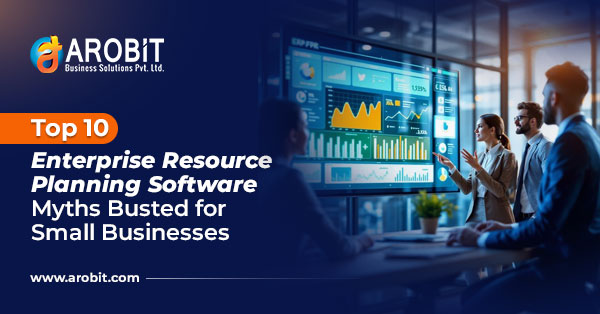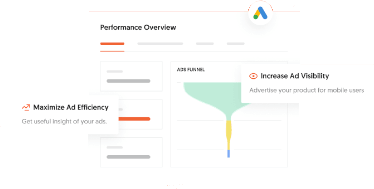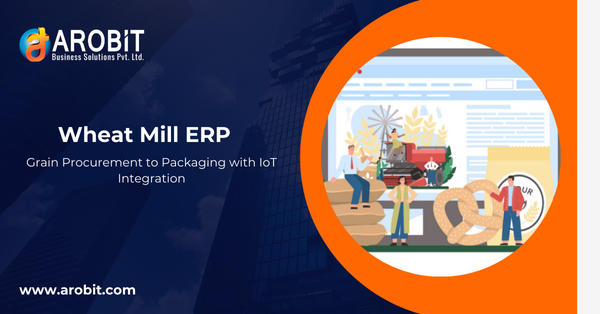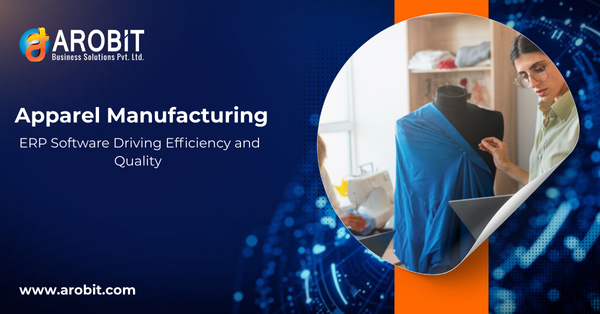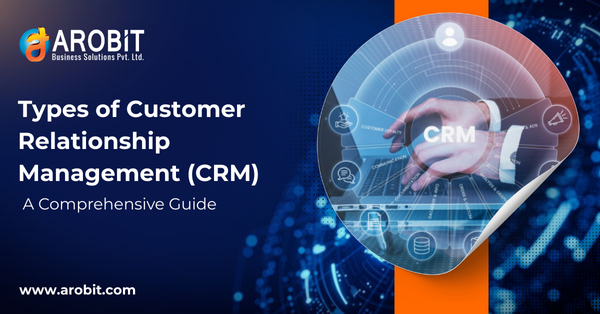Enterprise Resource Planning (ERP) software is a comprehensive tool that brings together and automates essential business processes such as finance, human resources, supply chain management, and customer relationship management under a single umbrella. Through the centralized data and real-time insights offered by ERP systems, businesses are able to automate processes, make better decisions, and boost productivity.
Although it offers advantages, numerous small businesses are reluctant to implement ERP software because of myths regarding its appropriateness, price, complexity, and deployment. In 2025, however, trends indicate that 62% of small businesses are adopting cloud ERP solutions to remain competitive.
This blog is intended to dispel the most common myths about ERP software and promote informed decision-making.
Myth 1: ERP Software is Exclusively for Big Enterprises
Reality: Contemporary ERP systems are extremely scalable and are made to support businesses of any size. Small companies can begin with fundamental modules and add more as they expand. Cloud ERP solutions have simplified the process of SMEs implementing ERP without having to make huge infrastructure investments. 62% of small companies will be utilizing cloud ERP solutions in 2025.
Myth 2: ERP Systems Are Too Expensive
Reality: Though ERP systems can appear pricey initially, their return on investment (ROI) over the long term outweighs the initial cost. Models such as SaaS (Software as a Service), based on subscription fees, enable small companies to pay monthly rates rather than investing huge amounts of capital. Such models save money while providing flexibility and scalability.
Myth 3: ERP Implementation Takes Years
Reality: Gone are the days of long implementation schedules. Thanks to agile techniques and cloud-enabled solutions, most small enterprises can implement ERP systems in 3–6 months. Phase-wise implementation techniques further ease the process by targeting important modules in the first go.
Myth 4: It's Too Complex for a Small Business Team
Reality: Modern ERP software prioritizes user-friendly dashboards and intuitive interfaces. Vendors often provide training programs and round-the-clock support to ensure smooth adoption. Employees can quickly adapt to these systems with minimal disruption to daily operations.
Myth 5: Customization Is Impossible or Too Expensive
Reality: Modern ERP vendors have introduced modular systems that enable companies to adjust features based on their requirements. Customizable features facilitate SMEs to modify the software without paying a fortune. For expanding companies, even custom-developed ERP solutions are acceptable options.
Myth 6: It Won't Seamlessly Integrate with Current Tools
Reality: Integration is one of the best attributes of contemporary ERP systems. APIs (Application Programming Interfaces) and plug-ins render it simple to integrate ERP software with pre-existing tools such as CRM, accounting systems, and stock control applications. This integration boosts efficiency among departments.
Myth 7: Data Security Is Compromised in ERP Systems
Reality: Cloud-based ERP systems comply with robust security standards, including ISO certifications and GDPR compliance. Indeed, more than 78% of cloud ERP users in 2025 indicate enhanced data security relative to traditional systems. Functions such as encryption and multi-factor authentication protect confidential business data.
Myth 8: It Will Disrupt Daily Operations
Reality: Phased implementation approaches reduce disruptions by deploying modules in stages. Companies are able to keep operating while gradually adopting the new system. Vendor assistance and appropriate planning further minimize downtime during deployment.
Myth 9: ERP Does Not Provide Any Genuine Advantages to SMEs
Reality: The advantages of ERP software for small businesses are enormous:
- Cost savings through process automation.
- Improved decision-making via real-time analytics.
- Increased productivity by removing manual work.
For instance, a small retail firm achieved a 20% improvement in operations efficiency six months after implementing an ERP system.
Myth 10: ERP Systems Are One-Size - Fits-All
Reality: Most vendors now provide industry-focused ERP solutions specifically designed for industries such as manufacturing, retail, healthcare, and services. Also, flexible development options enable customization according to individual business needs. Indian companies dealing in customizable ERP solutions have made a name for themselves globally as being highly adaptable.
FAQs
1. Do small businesses necessarily need ERP software?
Yes, ERP software assists small businesses in automating operations, minimizing manual work, and making informed decisions based on data-driven insights. In 2025, more than 60% of SMEs across the world have made ERP systems part of their business to remain competitive and enhance efficiency.
2. Are ERP solutions affordable for small businesses?
Yes. Most ERP providers have flexible pricing structures, such as cloud-based subscription models that lower initial costs. Small companies can begin with core modules and expand as necessary.
3. How long does it take to implement ERP software for a small business?
Implementation times differ, but for small companies utilizing cloud ERP systems, the process usually takes 3 to 6 months. New agile methods and pre-configured templates facilitate faster deployment.
Conclusion
ERP software is no longer the domain of large companies; it has become scalable, affordable software that can be adopted by small business enterprises from various industries. Debunking such myths helps small business entrepreneurs make the right choices when it comes to implementing ERP systems that lead to growth and efficiency.
If you’re considering an ERP system for your business, take the time to evaluate your needs and explore modern solutions tailored specifically for SMEs. The right choice could transform your operations and position your business for long-term success!

